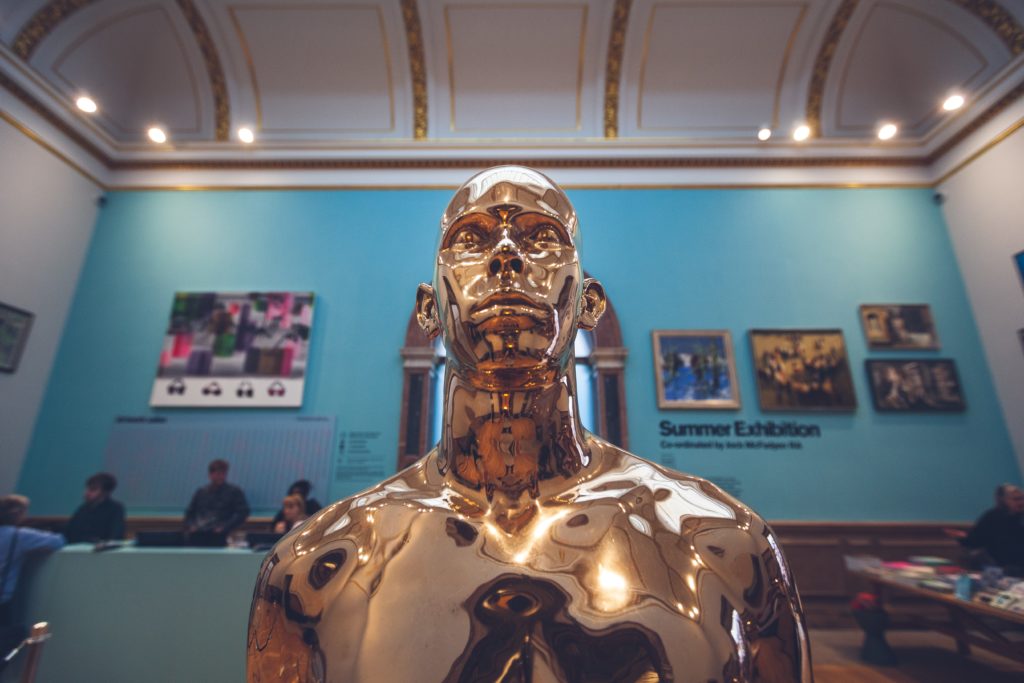AI as the Future of Public Administration. Possible or not?

If you think artificial intelligence (AI) still remains an idea of mad scientists and science-fiction writers, then you’re wrong. It’s already here. It will award you a grant and soon enough also judge you and deliver the sentence. While I am writing this post, somewhere in the world, hundreds, and maybe thousands of developers are working on an even better version of the software that will replace unperfect humanity. The biometric signature I have written about in my previous entries is in fact the technological Stone Age when compared to AI. What is Artificial Intelligence? Can one think about AI as the future of public administration? Is it even possible ?

What is AI?
You won’t find a definition of Artificial Intelligence in any of Polish or EU laws and I dare say, it would be difficult to find it in any biding law on this planet.
The name “artificial intelligence” – “AI” or “A.I.” – for shorter was created in 1956 and was invented by American computer scientist John McCarthy.
There really is no good and just one definition of Artificial Intelligence. By simplifying, Artificial Intelligence is a system that automatically analyzes data and then draws conclusions from this data. Some say that AI is in fact a type of a more or less advances software.
AI is the better, the more data it analyzes and the faster it draws conclusions from this data.
Of course, it’s not about the speed itself, but also about the quality and quantity of conclusions.
It’s very similar to our human thinking, isn’t it? Your brain also analyzes data (experiences, memories, observations) and draws conclusions from them. In other words: you think.

AI thinking and the ultimate “soul question”
AI software thinks similarly and usually much, much faster than you. Naturally, there is a significant difference between you or me and even the most perfect AI software currently existing.
Human thinking is not just a simple analysis of data. When you make a decision, you never rely only on the logic itself. Every human decision and every conclusion is made emotionally. Even when you are 100% calm and in a state of total Zen-zone, you will not turn off your emotions. This is how our species works.
Some believe that there is still some closer unidentified, “something in human thinking.” This thing in our culture is often called “soul”.
For the time being none known type of AI software has real emotions not even mentioning a soul.
The imitation of emotions is hard and with the soul it can be even much worse.

AI as the Future of Public Administration, it’s all about the data, honey
However one thing is certain: already now, artificial intelligence analyzes data faster and more accurately than humans. Even tons of very complicated data.
This ability to analyze data quickly is already widely used in practice. All ads you find in your inbox or advertising links on Facebook, hints on who to add to your contacts on LinkedIn, or who to follow on Twitter are the results of AI software’s work. Of course, rather not a very advanced AI but still.
Yes, my dear friend all data about what pages you have visited, what you are interested in, what links you shared etc. are collected and processed by AI software. Moderation of posts and accounts on Facebook or Twitter works in the same way. The content of your posts and accounts are not check by a man but by a software. Yes, yes, it’s AI banning you from Facebook you pervert. Joke, of course. I hope you won’t be banned from Facebook.

Those who already use AI in Public Administration
But forget about ads and simple moderation. There are already those who have noticed that artificial intelligence can be quietly hitched up to work at public administration.
Estonia is an absolute pioneer of such solutions. This Baltic country inhabited by 1.3 million people makes it clear: we intend to become one of the most technologically advanced societies in the world. Artificial intelligence already distributes some of the state’s subsidies to farmers there.
How is this done in practice? The farmer submits an online application and subsequently the application is checked from formal and legal perspective by the software. The programme shall decide whether to award public funds or reject the application. Moreover, it is also the software that checks whether the farmer has used the grant as requested. None human inspector is involved.
So how this works ?
AI uses satellite images of fields taken by European Space Agency satellites. The software compares images prior to and after awarding the grant. AI analyzes each pixel and is able to determine within seconds if the farmer has used the money as requested in the application or not.
And it gets even better as when Estonian public administration AI detects that these photos do not prove the farmer uses the grant properly, it sends the farmer an email or texts her/him 2 weeks before the deadline to comply with the conditions set forth in the decision on awarding the grant.

AI as the Future of Public Administration: it pays off despite AI’s imperfection
According to Estonian government data, the mere replacement of living inspectors with AI saved the state budget around €665,000 only during the first year of using this technology.
And that’s despite the fact that this system it is not perfect. First, there are situations where comparing pictures of “pre” and “after” granting state subsidies is not enough and a human inspector must go to inspect the farm personally.
Secondly, if an application for a grant is rejected by AI, the appeal against this decision is still submitted to human public administration officers .
However, this does not change the fact that the administrative decision to accept or reject the application is made by AI. The problem of artificial intelligence and using it for public administration has ceased to be virtual.
So why do not go further? How about AI judging cases and delivering sentences? Is it possible? And what Polish laws state about it?
We shall see in my following posts.
Regards, Prawstoria




